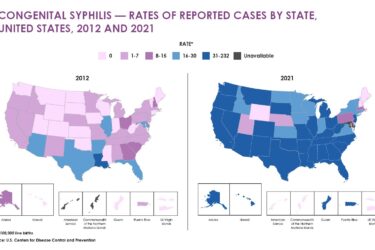
Is eliminating the religious or philosophical exemption from vaccinations the right public policy tool to stop and prevent measles outbreaks? This is a public policy debate that hasn’t been widely covered, but is an important conflict within the public health world and worth the attention of journalists.
Earlier this year, Daniel Salmon, Ph.D., director of the Johns Hopkins Institute for Vaccine Safety, raised concerns that state efforts to pass laws banning the religious exemption could backfire by increasing mistrust of public health officials and harden parents’ objections to vaccinating their children.
“We need 95% compliance indefinitely,” Salmon told attendees of a biosecurity conference led by the Scowcroft Institute of International Affairs in May 2019.
Salmon was referencing the requirement that 95% of children be vaccinated against measles to create herd immunity, and added that: “we don’t want this to be a divided issue. If parents feel we are being draconian, it may cause a backlash.”
In June, New York became the fifth state to eliminate the right to use a religious or philosophical reason for exempting a child from vaccination before attending school.
Between Jan. 1 and Sept. 5, 2019, there have been 1,241 individual measles cases in 31 states, according to the Centers for Disease Control and Prevention. This is the largest outbreak since 1992. More than 75% of the cases were in New York, where large numbers of parents in religious communities declined to vaccinate their children, for religious or philosophical reasons.
Research has shown, however, that while state bans on religious exemptions may initially increase vaccination, parents will find other ways around the law, according to a round up of studies analyzed by the Harvard Kennedy School’s Shorenstein Center on Media, Politics and Public Policy.
The Center said that scholars looked at the effects of California’s ban on religious exemptions, which passed in 2015, and found that parents would get medical exemptions, take their children out of school or find other ways around the law.
“I think parents with real vaccine hesitancy are going to search for ways to not vaccinate their children,” Paul L. Delamater, a lead researcher on one of the studies told the Shorenstein Center’s Denise-Marie Ordway.
In 2019, California’s legislature passed a law, which is awaiting the governor’s signature, that would tighten medical exemption rules, as some physicians were found to be giving hundreds of children questionable medical exemptions from vaccination. (Update: Gov. Gavin Newsom signed the bill on Sept. 9.)
Salmon says public health officials have to find additional ways to reach parents to convince them to vaccinate their children that doesn’t involve reducing parental autonomy.
- To see the Shorenstein analysis of research and links to the studies, click here.
- To reach Salmon, click here.
- For the latest CDC data on the measles outbreak, click here.






